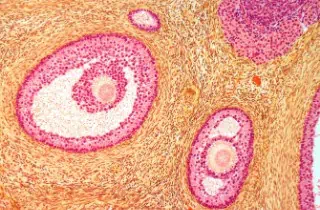
The progestins of contraceptive injections and implants can cause depression, weight gain, and irregular menstrual bleeding.
Side effects occur because 1) progestins are not progesterone, and 2) progestins at that dose can suppress ovulation and cause anovulatory bleeding. Keep reading to learn the difference between a real period, an anovulatory bleed, and a pill bleed.

 Successful treatment of heavy periods relies on identifying an underlying cause such as hormone imbalance (low progesterone), adenomyosis, or thyroid disease.
Successful treatment of heavy periods relies on identifying an underlying cause such as hormone imbalance (low progesterone), adenomyosis, or thyroid disease. Headaches, anxiety, insomnia, brain fog, hives, and nasal congestion. These are just a few of the symptoms of mast cell activation or high histamine.
Headaches, anxiety, insomnia, brain fog, hives, and nasal congestion. These are just a few of the symptoms of mast cell activation or high histamine.